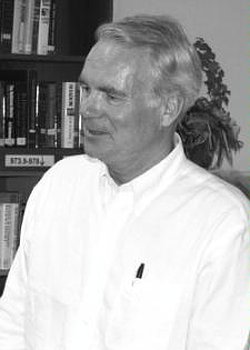Title: The Pacesetter
Author: Jerry M. Fisher
Publisher: FriesenPress
ISBN: 978-1460245361
Pages: 552,Paperback
Genre: Biography
Synopsis
Jerry Fisher never imagined the consequences of writing what is widely recognized as the premier biography (there are three) of his relative, Carl Graham Fisher when his book, “The Pacesetter,” was published in 1998. His original objective was to pay tribute to a truly remarkable man whose contributions to shaping the American way of life in the 20th Century have never been appreciated on a broad scale. Known to some as “Mr. Miami Beach,” Carl was an indomitable entrepreneur whose accomplishments ranged from delivering the first viable automobile headlight to founding the Indianapolis Motor Speedway, developing Miami Beach, establishing New York’s Montauk resort community and leading the effort to build the first transcontinental highways – leading some to call him “the father of our modern freeway system.” Those were just his biggest ideas. Few know of Carl or his contributions. Few, except for those that have read Jerry Fisher’s book. (Take a look at the 2013 Indianapolis 500 television broadcast intro segment featuring an actor playing Carl Fisher.)
What Jerry Fisher didn’t count on was how his book would touch so many lives, and, in return, challenge him. People from around the country and even across the oceans began contacting him. They gave him ideas and more information even Jerry did not previously have. And they posed lots of questions like, “What ever happened to Carl and Jane’s adoptive son Jackie?” Connecting the dots, Jerry Fisher not only found the answers to that question and many others but recognized a community of interest focused on Carl Fisher had emerged. With the new information that was flowing in from interested parties Jerry felt he had no choice but to update his book.
Just as Carl Fisher’s father Albert had deserted his family when Carl was very young, so had Jerry’s father, who was named after Carl Fisher, left him and his mother behind. An understandably painful experience, Jerry had chosen never to speak – let alone write – of it before. Through these circumstances, Jerry made a totally unexpected connection to Carl Fisher. He was presented with letters written by the great entrepreneur criticizing Jerry’s father and his irresponsible behavior toward his family as well as other transgressions. Carl’s letters written to a judge about actions taken by Jerry’s father reveal additional insight into Carl Fisher and his moral grounding even when dealing with a family member. Jerry sensed that the pain Carl’s father inflicted on him was reflected in this correspondence that seemed to span decades to touch his heart. There were more than words to write – there was haunting emotion.
“Those letters were very painful, very disturbing to read. They opened old wounds that had never healed. And somehow, I knew that Carl Fisher was feeling the same kind of pain when he wrote them,” Jerry says.
Another very special communication came some time ago that inspired Jerry tremendously. It was a letter from the two-time Pulitzer Prize award winning author and historian, David McCullough.
“David McCullough wrote me a two page handwritten letter about my book “as author to author” which I have framed above my desk today. Any time I feel down I just look at that picture and all is well again. That is the the power of words and letters,” Jerry says.
Another unexpected surprise came when “The Pacesetter” was recognized and received awards from two distinctive organizations. The Society of Automotive Historians Cugnot Award of Distinction, “In recognition of particular merit in the field of automotive history in 1998” was the first. Also in 1998 he became a recipient of the National Award of the Antique Automobile Club of America (AACA), “Thomas Mckean Memorial Award”.
Jerry’s new-found personal connection with Carl sharpened his understanding of the man. With the current economic crisis rooted in real estate values so much in the news, Jerry felt a crushing weight of empathy for what Carl Fisher endured late in life when his empire was decimated by his massive losses in Florida real estate value in the 1920’s. Equipped with more than just facts, but now a deeper understanding of the personal side of Carl Graham Fisher, Jerry now needs to tell this story – just as so many others need to read it. The new, updated version of “The Pacesetter,” will reveal much more about Carl Fisher and what drove him. This is so timely with this year’s centennial anniversary of the founding of the Indianapolis Motor Speedway and soon the same anniversary of the first Indianapolis 500. Both were birthed in the fertile mind of Carl Fisher.
For the memory of Carl Fisher this book will be a lasting monument to a man who promoted his products but shunned personal limelight. For Jerry Fisher it is a coming home of sorts. A reconciliation with a family legacy as painful as it is glorious. For the rest of us it is an inspiration in human possibilities and what can be achieved by thinking bigger than our obstacles and working so hard they wither under our passion.


